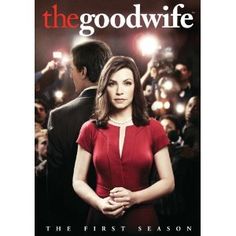The worst thing for a television series is not getting cancelled too son. The worst thing is actually that it will last too long. 
As much as we like to grumble about the cases of a show getting axed prematurely, it’s now become much, much more common for a series to live long past the point of people caring. Even some famous examples of cancelled series (Arrested Development, The Mindy Project) went on to be renewed on streaming platforms with seasons most fans thought weren’t as strong.
I bring this up as a way of saying that “The Good Wife” has lasted at least one season too long, and what initially seemed like a shockingly bold move for the series—killing off Will Gardner—turned into a death knell for the series. Sure, it was a game changer, but it eventually meant that all the series essential mysteries (will Alicia choose Peter or Will? What does her life outside Lockhart/Gardner look like?) were null and void and the series has taken the long way around just to get back to where it started: Alicia’s a partner at Lockhart/Gardner/Agos/Canning/Who-Gives-a-Fuck? and she’s forced to stand beside Peter during a trial while her heart is with another guy (this time that’s Jeffrey Dean Morgan’s private investigator Jason).
We’ve seen too many plot-lines start out like series changers—Alicia starting her own firm, then running for state’s attorney, then Peter running for President—only to just wind up back in the same place: Alicia has now left Lockhart/Gardner twice and returned to work there twice. Her State’s Attorney run ended in scandal, and Peter’s presidential bid imploded early in Iowa.
This is a show that seems virtually incapable of forward-plot movement. The only truly big shake-ups have come from cast departures (i.e. Will) like last season’s exit of Kalinda Sharma, a character that I didn’t realize was so essential until she left. Now we’ve had a season where Cary Agos has had virtually nothing to do, and even his baby steps towards a relationship with Lucca Quinn (Kush Jumbo, as the only intriguing new element of this season) were quickly dropped so that Cary could disappear and Lucca could waste her last episode’s playing matchmaker to Alicia and Jason.
These last few episodes have also reminded me of my long-standing beef with “The Good Wife.” I’ve written more than once about this show’s tendency to portray black women as obstacles more than characters (check out “The Good Wife Only Portrays Black Women as Antagonists” and “The Good Wife Just Can’t Stop Portraying Black Women as Problems” in search results). The show is particularly rough on black women who date white men, and their relationships. And the last few episodes—wherein Alicia’s son (who dumped his long-term black girlfriend) gets engaged to a redhead we’ve never seen before and Geneva Pine is testifying against Peter—only highlight that problem.
The last-minute plot twist that Peter might have had an affair with Geneva actually makes no sense if you’ve been awake during their scenes together and given what we know about her (that she’s already had an affair with a white cop, that must have been busy carrying on two long-term affairs), but shows that “The Good Wife” just can’t resist one last pot-shot on its way out the door.
Well, so long “Good Wife.” It’s a shame you introduced dozens of great characters only to then waste them (in addition to Will Gardner and Kalinda, there have been literally dozens of great side characters like Lemond Bishop or Margo Martindale’s campaign strategist who didn’t get good endings) and it’s also doubtful we’ll get proper exits for Cary Agos or Lucca Quinn. Sad to say, but the few characters who are left will largely exist to service Alicia’s relationship Jason, which we weren’t asked to care about until very recently. It’s a shame that the least interesting part of “The Good Wife” has usually been the title character. And it’ll likely be that way in the series finale as well.
